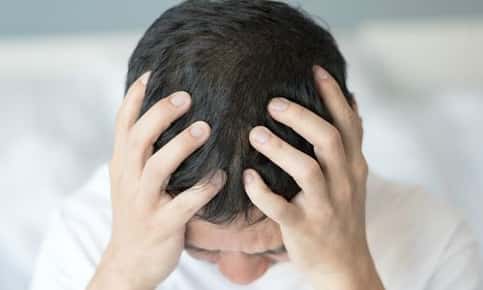
How Vision Therapy Can Help You Recover from Post-Concussion Syndrome
TV shows and movies make concussions look like minor inconveniences. After a bump on the head, a character has a headache for a day or two, then never suffers another symptom.
Things are often much different in reality. Concussions may cause debilitating issues that last weeks or months after your injury. Fortunately, vision therapy can help ease headaches and nausea, eliminate concussion-related vision problems, and make reading and concentrating much easier.
Do You Have Post-Concussion Syndrome?
You may have post-concussion syndrome if your symptoms don't improve after a week or two. Ten to 20 percent of people who've had concussions develop the syndrome, according to The Concussion Project. Symptoms of post-concussion syndrome include:
- Frequent headaches
- Nausea, dizziness, and vertigo
- Blurred or double vision, particularly when reading
- Sensitivity to light
- Clumsiness and balance issues
- Trouble keeping your place when you read
- Difficulty remembering what you read
- Problems with concentration and memory
- Confusion
- Spinning or moving sensations when you're sitting or standing still
- Difficulty following objects with your eyes
Your eyes and brain work together to provide quality vision. After light enters your pupil, the clear lens inside the eye focuses it on the retina at the back of the eye. Light impulses are instantly transmitted via the optic nerve to the brain, where they're processed into images. Even mild brain injuries can interfere with your brain's ability to receive, process and perceive images.
Focusing on near or far objects, a skill most of us take for granted, can be affected after a concussion. You may notice blurriness when you try to focus for more than a few seconds. Blurriness may be prolonged or can come and go.
Both of your eyes must move together to provide good vision. A concussion can affect your ability to move your eyes in unison. If the eyes send very different images to the brain, you may experience double or blurred vision, difficulty reading, eyestrain, headaches, balance problems, nausea, vomiting, and other unpleasant symptoms.
Even problems that seem unrelated to vision may actually be caused by issues with your brain's visual centers. A motion sickness problem or difficulty walking or driving may be caused by an injury to specific areas of your brain responsible for vision.
A Vision Therapist Can Help You Recover from Your Concussion
Vision therapists are optometrists specially trained to treat conditions that interfere with the brain and eye connection. During your first visit to a therapist, you'll discuss your symptoms and participate in a comprehensive eye examination.
Comprehensive examinations involve much more than reading an eye chart. In fact, you may have 20/20 vision, yet still suffer from post-concussion syndrome or another vision problem. As part of the exam, you'll participate in a variety of tests that will determine if you have any issues with eye teaming, tracking, focusing, memory, attention, processing and other problems.
If your vision therapist determines that your symptoms are related to post-concussion syndrome, he'll recommend a vision therapy treatment plan that will address your specific issues. Vision therapy enhances the brain and eye connection with activities, games, and assistive devices.
One of the most simple types of vision therapy activities involves the Brock string. After you attach one end of the string to a stationary object, you'll hold the other end against your nose. You'll gaze at each of the three beads located on the string to improve your focusing ability.
Computerized games designed to improve balance, focus, hand-eye coordination, visual memory or eye teaming are often used to treat post-concussion syndrome. Therapy may also involve using balance balls or wearing special lenses, such as yoked prism eyeglasses that may help improve walking, balance, and nausea.
Vision therapy offers a simple, natural way to ease your post-concussion symptoms. Contact us if you would like to schedule an appointment for a comprehensive eye exam.
Sources:
The Concussion Project: A Concussion is a Form of Mild Traumatic Brain Injury
https://concussionproject.com/
NCBI: Optometry and Vision Science: Vision Therapy for Post-Concussion Vision Disorders, 1/17
https://www.ncbi.nlm.nih.gov/pubmed/27505624
Optometry and Vision Science: Vision Therapy for Post-Concussion Vision Disorders, 1/17

